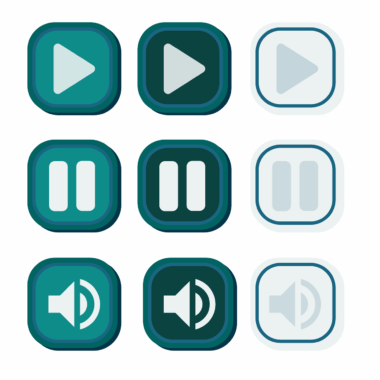Tracking Progress with Weight Loss Apps: A Comprehensive Guide
As more people embark on their fitness journeys, the demand for weight loss apps has surged dramatically. These apps provide a structured way to monitor food intake, physical activity, and overall progress. This popularity is not surprising, considering that tracking is essential for achieving weight loss goals. Often, users question how these apps streamline the weight loss process. They not only help with calorie counting but also enhance motivation by providing visual progress reports. Engaging with these tools can encourage lifestyle changes, beneficial not just for weight loss but overall health as well. Now, let’s explore the key features that successful weight loss apps should embody. Users should look for functionalities that allow for customization and privacy, fostering a tailored experience. Additionally, the inclusion of social support features can help users connect with like-minded individuals. With effective tracking tools, these apps offer pathways to sustained fitness and health transformations. Proper usage can lead to remarkable results, encouraging long-term adherence to health goals while making the journey enjoyable.
Essential Features of Weight Loss Apps
Weight loss apps vary widely in the functionalities they offer, so it’s crucial to identify the essential features. These must-have elements enhance user experience and effectiveness in achieving goals. Firstly, a user-friendly interface is vital for seamless navigation and ease of data entry. The app should simplify logging meals, workouts, and water intake without overwhelming the user. Secondly, a comprehensive food database is essential. This database should include nutritional information for common foods, restaurants, and even home-cooked meals, assisting with accurate calorie tracking. Thirdly, personalized meal planning features can significantly boost user engagement. Users are more likely to stick with their plans when meals cater to their tastes and dietary restrictions. Forthcoming, insightful progress tracking reinforces accountability, providing users with vital insights on their journey. Graphs and charts that display changes over time can further motivate users. As social interaction capabilities become increasingly popular, apps offering community support help eliminate feelings of isolation. Lastly, compatibility with wearables allows real-time data gathering, creating a holistic picture of one’s health and wellness.
When embarking on the weight loss journey, discovering the right app can be overwhelming due to the multitude of options available. However, understanding your specific needs can significantly narrow down choices. For instance, if you struggle with meal planning, choose an app that includes recipes and grocery lists. Alternatively, if you prefer to focus solely on exercise, seek one with extensive workout tracking capabilities. Many find accountability very motivating, leading them to select options that include social sharing functions or forums. Also, consider whether you prefer a free app or are willing to invest in a premium version that offers advanced features. Some apps provide customized coaching and meal suggestions as part of subscription services, which could be worthwhile for motivated users. The initial trial of various apps is critical, as many provide a free trial period. This trial allows you to test usability and features before making a commitment. Ultimately, selecting an app tailored to your habits, preferences, and goals can transform your fitness journey, ensuring long-term success and sustained enthusiasm.
Engaging with the Community
One of the most significant aspects of using weight loss apps is the opportunity to connect with a community of similar individuals. These social features offer motivation and support, often pushing you to stay committed to your goals. Many apps include forums, groups, or social media integration, allowing you to share your goals, progress, and challenges with others. This engagement can create a sense of accountability, making it easy to stay motivated and inspired. Additionally, seeing others’ success stories can encourage you to stay focused on your own journey, sparking healthy competition or camaraderie. Users can exchange tips, recipes, and strategies in these spaces, fostering an environment of support and shared experiences. Regular interaction can also alleviate feelings of isolation commonly felt during weight loss endeavors. Furthermore, many successful weight loss apps offer features that allow users to post progress photos and celebrate milestones. These milestones can greatly enhance motivation and create a positive reinforcement cycle in your wellness efforts. Connecting with others can push you to achieve your fitness aspirations while having fun along the way.
Another important feature of these apps is tracking progress and celebrating achievements. Progress tracking is essential for users to visualize their journey and stay motivated. Most weight loss apps include graphs or percentage markers that display weight loss over time, allowing individuals to see how every tiny milestone adds up to significant success. Users should receive personal feedback regularly, helping them identify trends and adjust their strategies if needed. Additionally, celebrating achievements is crucial in maintaining motivation throughout the weight loss journey. Whether it’s tracking calories, workouts, or personal bests, being aware of accomplishments can boost morale. Some apps even offer badges or rewards for reaching specific milestones, gamifying the process and encouraging continued engagement. Furthermore, integrating personal rewards, such as treating yourself to a non-food-related gift once you hit a goal, can enhance excitement. It’s important to remember that weight loss is a gradual process, and small, consistent progress is key. Therefore, acknowledging mini-achievements keeps spirits high, allowing for a focused approach to long-term transformations.
Analyzing Nutritional Intake
A successful weight loss app will also help users analyze their nutritional intake. Understanding what goes into your body is essential for making healthier choices. Most apps facilitate this by allowing users to log their food alongside corresponding nutritional information. This information includes calorie counts, macronutrient breakdowns, and vitamin content. By analyzing this data, users can identify patterns in their eating habits, highlighting areas for improvement. For example, are you consuming enough proteins or too many sugars? Insight into these metrics can guide informed choices, potentially leading to healthier meal planning. Portion control is often a challenge for many; tracking serving sizes can help you understand real caloric intake. Additionally, breaking down the ratio of proteins, carbohydrates, and fats in your diet encourages balanced eating habits. Some applications even suggest healthier alternatives to foods that users frequently log. With this level of detail, users can make conscious decisions that align with their fitness objectives. Data-driven insights foster an understanding of nutritional balance, helping users meet their weight loss goals effectively.
Moreover, the integration of exercise tracking enhances the effectiveness of these weight loss apps. Tracking physical activity is crucial for creating a comprehensive picture of weight loss efforts. Many apps allow users to log various forms of exercise, from cardio to strength training, along with duration and intensity. This data provides insights into calorie expenditure, helping users assess whether they are in a calorie deficit necessary for weight loss. Moreover, tracking workouts can demonstrate progress in strength, endurance, or flexibility, keeping users motivated. A major perk is the ability to sync with wearable devices, providing real-time monitoring of heart rates and calorie burn. This seamless data collection encourages users to stay active throughout the day. Visualizing workouts over time drives home the importance of consistency, laying a foundational mindset for effective weight management. Additionally, apps tailored for various fitness levels can accommodate everyone, from beginners to seasoned athletes. As users gain confidence and improve fitness routines, they can gradually increase workout intensity, ensuring they remain challenged on their journey.
Conclusion and Next Steps
Wrapping up the discussion on tracking progress with weight loss apps, it’s clear that the right application can significantly alter your weight loss journey. Personalized features, community support, and robust tracking functionalities contribute to success. As you embark on this journey, consider prioritizing your needs to find an app that fits. Start by evaluating different applications, taking advantage of free trials to discover what aligns best. Regularly engaging with the app and its community can ultimately spur motivation and accountability. Documenting your journey allows for reflection and adjustment of goals as necessary. Therefore, consistency is key; try to incorporate the usage of your chosen app daily, making it a core part of your routine. As technology evolves, keep an open mind toward exploring new advancements in weight loss strategies using these apps. With dedication, ongoing learning, and adaptability, users can achieve not only weight loss but also sustainable lifestyle changes. Focus on the small steps, stay mindful of your nutritional intake, and embrace the support available through these innovative tools.





